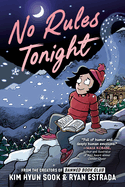 Eunice Hong is the director of the Leadership Initiative and a lecturer in law at Columbia Law School. She was previously a litigation associate at Paul, Weiss, Rifkind, Wharton & Garrison, and a law clerk to Richard M. Berman in the United States District Court for the Southern District of New York. Hong received her J.D. from Columbia Law School after graduating from Phillips Academy Andover and Brown University. She resides in New York City. Her debut novel, Memento Mori (Red Hen Press, August 13, 2024), is the winner of the 2021 Red Hen Press Fiction Award.
Eunice Hong is the director of the Leadership Initiative and a lecturer in law at Columbia Law School. She was previously a litigation associate at Paul, Weiss, Rifkind, Wharton & Garrison, and a law clerk to Richard M. Berman in the United States District Court for the Southern District of New York. Hong received her J.D. from Columbia Law School after graduating from Phillips Academy Andover and Brown University. She resides in New York City. Her debut novel, Memento Mori (Red Hen Press, August 13, 2024), is the winner of the 2021 Red Hen Press Fiction Award.
Handsell readers your book in 25 words or less:
Memento Mori offers a modern perspective on the Eurydice and Orpheus myth through a Korean woman who uses storytelling to try to understand her grief.
On your nightstand now:
My friends and parents make fun of me for this, but I'm always reading The Iliad. I have Allen Rogers Benner's Selections from Homer's Iliad next to my bed, because I'm trying to get back into a practice of reading the Greek. I also have two other books that I'm looking forward to starting:
This Flesh Is Mine by Brian Woolland, a play drawn from The Iliad that was performed in both Palestine and in London in 2014 in a joint coproduction by the Ashtar Theatre and Border Crossings; and Glorious Exploits by Ferdia Lennon, a novel about the Peloponnesian War that debuted this year.
Favorite book when you were a child:
Little Women by Louisa May Alcott. My mother gave me her copy, which I wore out so much that my grandmother had to laminate the cover with Scotch tape. Jo March had a profound effect on how I understood the performance of gender, particularly when someone would tell me that I couldn't or shouldn't do something because I was a girl.
Your top five authors:
I'll cabin myself to non-ancient authors:
John Edward Williams, for Augustus and Stoner.
Anthony Doerr, for Memory Wall, All the Light You Cannot See, and Cloud Cuckoo Land.
Kazuo Ishiguro, for Never Let Me Go.
Celeste Ng, for Everything I Never Told You.
Yaa Gyasi, for Homegoing and Transcendent Kingdom.
Book you've faked reading:
I don't know that I've ever faked reading a book, but there are a few I haven't been able to get through. I really tried with Dune by Frank Herbert, but I couldn't get into it. I've loved the movies, though.
Book you're an evangelist for:
Augustus by John Edward Williams, an epistolary novel about Gaius Octavius becoming Augustus after the assassination of Julius Caesar. A gorgeous, sweeping book that also feels intimate.
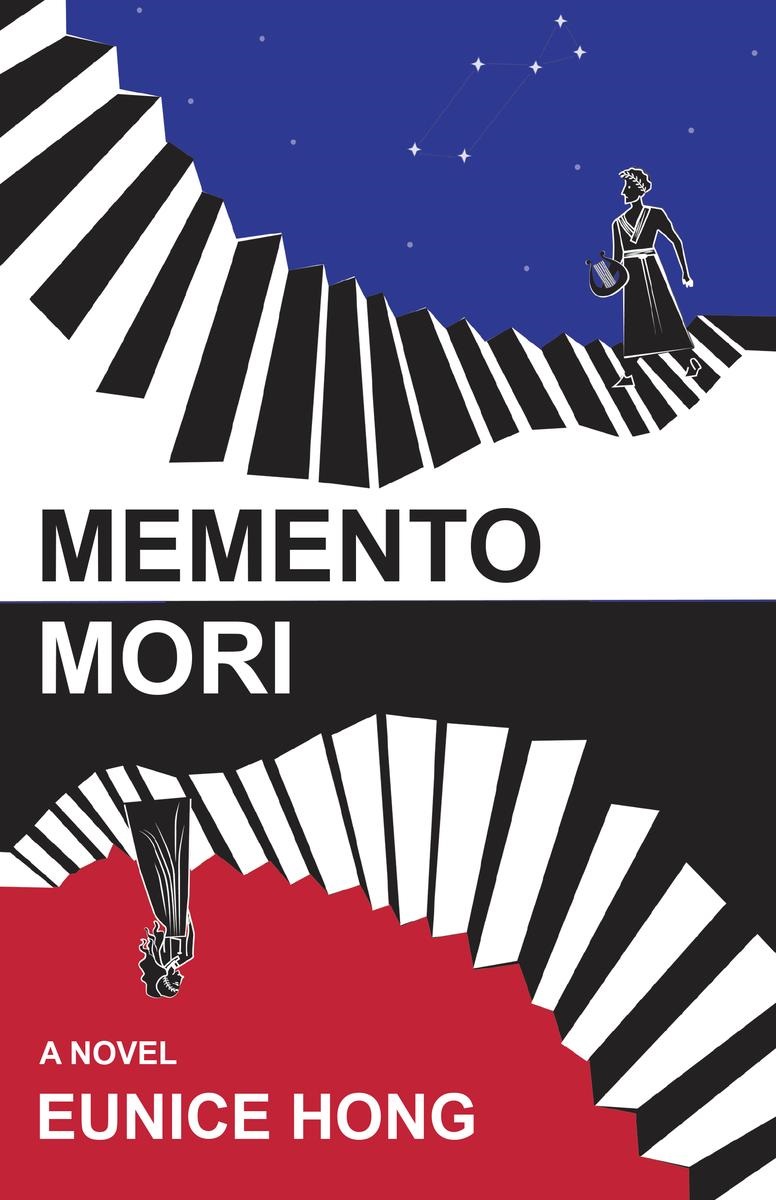 Book you've bought for the cover:
Book you've bought for the cover:
We, the Drowned, a Danish novel by Carsten Jensen. I usually have a good sense of whether I'm going to enjoy a book after the first few pages, and I put this one down three or four times. But for some reason, I felt compelled to pick it back up each time, and I'm glad I did, because it turned out to be an incredibly beautiful and engaging saga.
Book you hid from your parents:
I don't recall hiding specific books from my parents, who rarely investigated the contents of what I was reading. But I would often hide my books and a flashlight under my blanket so I could continue reading after my bedtime.
Book that changed your life:
On Another Man's Wound, a memoir by Ernie O'Malley that was responsible for me deciding to major in political science in college. The memoir gives a candid and moving account of his life as a soldier during the Irish War of Independence, with stunning descriptions of the land that give you a visceral understanding of why one might feel compelled to fight for freedom.
Favorite line from a book:
I am blanking on every word I have ever read. The first quote that comes to mind is from an incredible play called Copenhagen by Michael Frayn: "I was formed by nature to be a mathematically curious entity, not one, but half of two."
Five books you'll never part with:
On Another Man's Wound by Ernie O'Malley. I have a first edition of the U.K. and the U.S. printings, which I never touch in case I ruin them.
Augustus by John Edward Williams. I made the mistake of lending my first copy to my mother years ago, and she still hasn't given it back, so I bought a second copy that I'm hiding from her.
Cannery Row by John Steinbeck. I did not enjoy The Grapes of Wrath in high school, and I refused to read more Steinbeck for years. But I finally decided to give this one a shot, and I was stupid not to have read it earlier.
Dated Emcees by Chinaka Hodge, a slim book of poetry that took me forever to read because I kept putting it down so I could process its genius.
Little Women by Louisa May Alcott. I still have the taped-up copy my mother gave me, and I will keep it forever.
Book you most want to read again for the first time:
Never Let Me Go by Kazuo Ishiguro. I went into the book already spoiled on the premise, and I wonder what the impact would have been if I had gone in knowing absolutely nothing about the book.
Your favorite myth retellings:
Country by Michael Hughes, which transposes The Iliad to Northern Ireland in an unforced, brilliant way.
Home Fire by Kamila Shamsie. I went into this not realizing it was a retelling. About halfway through, I was like "hang ON," and it clicked. I won't give away what the retelling is for anyone who doesn't know, but Shamsie does a stunning and devastating job pulling everything together.
For Her Dark Skin by Percival Everett. A few years ago, I read all the Medea retellings I could get my hands on within the space of a month (which I don't recommend for health reasons), and this one really stood out to me, along with Medea by Christa Wolf.
House of Names by Colm Tóibín. I think I've read most, if not all, of the retellings involving Clytemnestra, and this one is my favorite.
Here, the World Entire, a novella about Medusaby Anwen Kya Hayward. There is a lot of discourse about what versions of the Medusa story are "original" or "Ovid propaganda" or "woke propaganda." I don't care about any of that. The writing is gorgeous, and it broke my heart. I hope she does a longer treatment of Medusa one day.
 On Bookstore Romance Day, Lovebound Library in Salt Lake City, Utah, announced plans for expanding the romance bookstore that opened six months ago into the space directly behind it. The Salt Lake Tribune reported that owner Courtney Stookey credited the ability to do so to the readers and fans who have been supporting the store since it launched.
On Bookstore Romance Day, Lovebound Library in Salt Lake City, Utah, announced plans for expanding the romance bookstore that opened six months ago into the space directly behind it. The Salt Lake Tribune reported that owner Courtney Stookey credited the ability to do so to the readers and fans who have been supporting the store since it launched.













 German bookstore chain
German bookstore chain  Australia's struggling online bookseller
Australia's struggling online bookseller 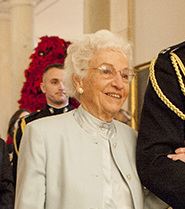
 Congratulations to
Congratulations to 
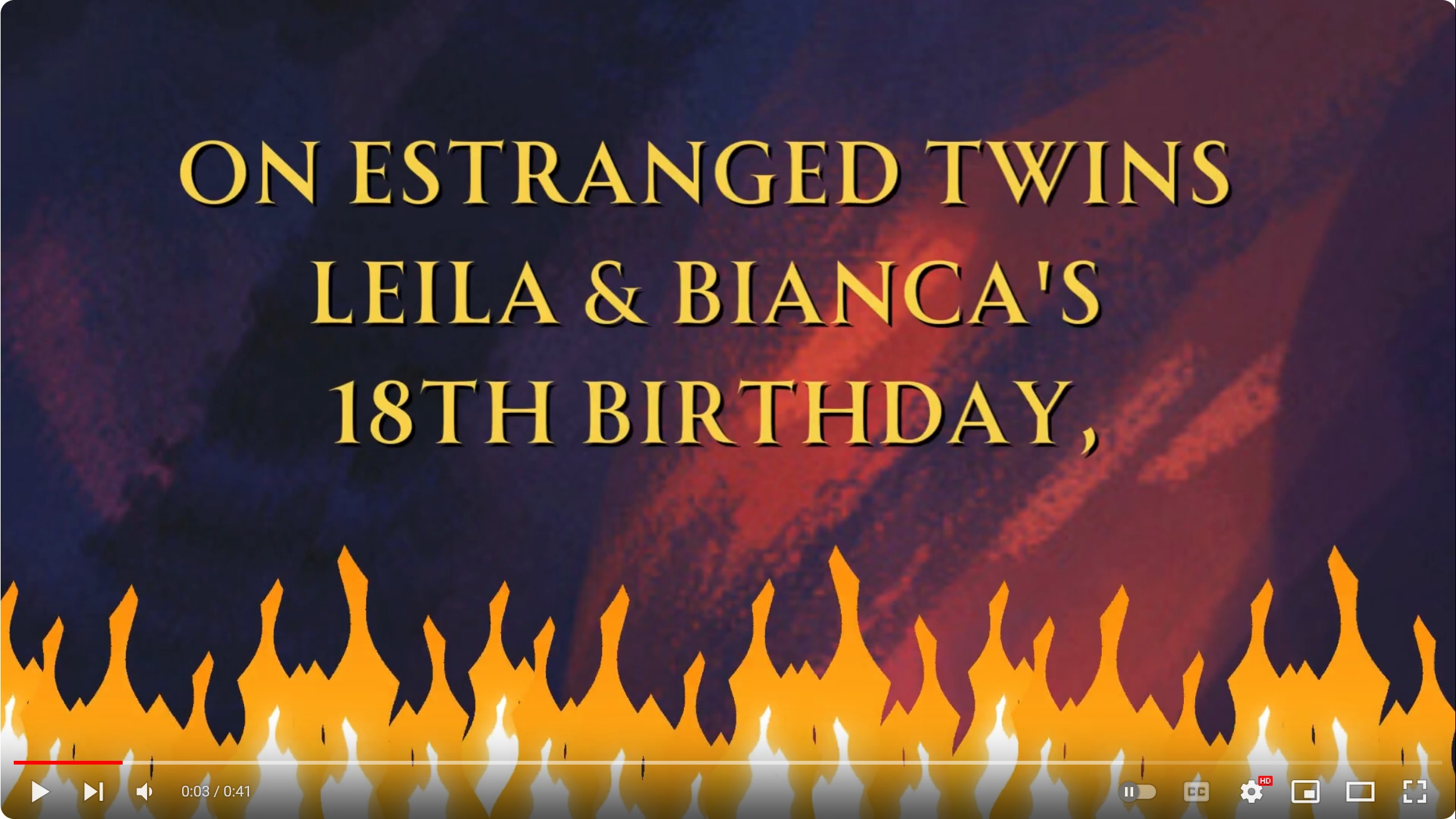 Twin Flames
Twin Flames
 Book you've bought for the cover:
Book you've bought for the cover: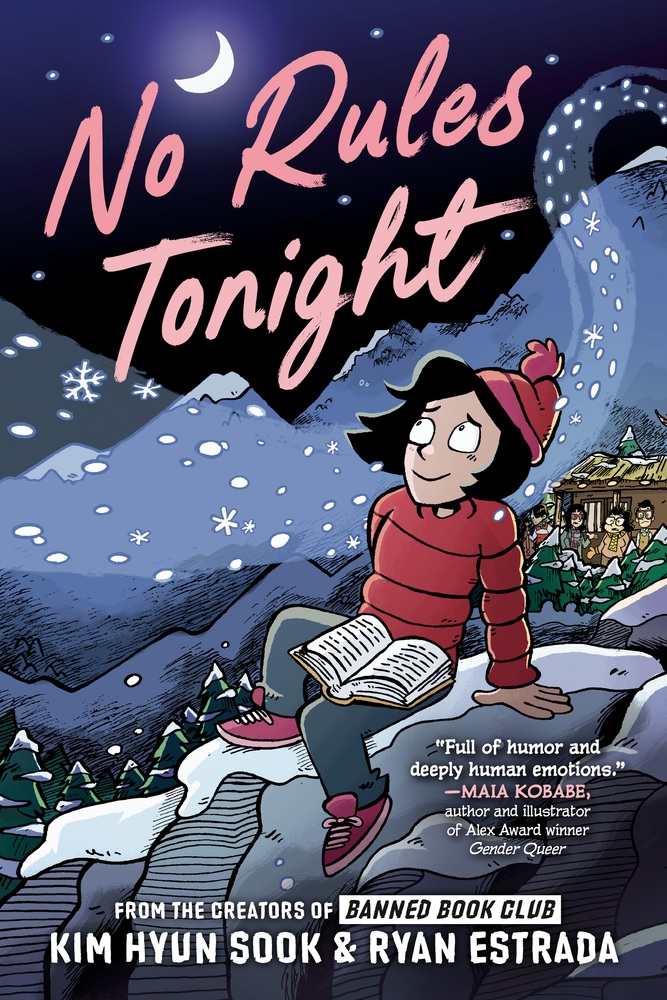 In their lauded Banned Book Club, Korean creative team Kim Hyun Sook and Ryan Estrada, with illustrator Ko Hyung-Ju, used the graphic novel format to tell Kim's gripping story of book club rebellion under martial law. Kim and Estrada inspiringly continue Kim's autobiographical journey in No Rules Tonight, this time illustrated by Estrada himself.
In their lauded Banned Book Club, Korean creative team Kim Hyun Sook and Ryan Estrada, with illustrator Ko Hyung-Ju, used the graphic novel format to tell Kim's gripping story of book club rebellion under martial law. Kim and Estrada inspiringly continue Kim's autobiographical journey in No Rules Tonight, this time illustrated by Estrada himself.